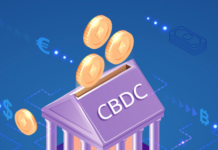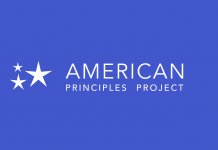The imposition of vaccine mandates to deal with the spread of coronavirus has been one of the most contentious issues of the past two years, ever since the vaccines became widely available.
The federal government has its form of vaccine mandates. Various state governments have vaccine mandates. Local governments, school districts, and private businesses have vaccine mandates. Many of these vaccine mandates conflict with one another.
Vaccine hesitancy, or the reluctance to get the COVID-19 vaccine and booster shots, is defined by the CDC as people who either definitely will not get the shots, probably will not, or are unsure whether they will get them. The reasons people won’t get the vaccine, even though catching COVID-19 can lead to serious illness or even death, varies for each person.
Many governments and private businesses have responded with mandates, which usually means people must get the shots or face loss of employment. Even so, as of December 2021, roughly 15% of the American population had not gotten the vaccine.
According to the Census Bureau, The main reasons people cite for refusing the vaccine are either a fear of the side effects or a lack of trust that the shots will be effective. Some also feel that natural immunity is better, and will build herd immunity.
It’s clear that mandates are not persuading this group of people to receive the shots and could be causing some unintended mental health effects.
The Roots of Vaccine Resistance
A study in Applied Psychology Health and Well-Being suggests that a link exists between a low intention to get the COVID-19 vaccine and the sudden imposition of a vaccine mandate. Rather than being persuaded to get the shots, these people’s reluctance to get the vaccine is enhanced, even if they risk losing their jobs.
Contrariwise, a scarcity of the vaccine made people more willing to take the shots and take greater measures to acquire them.
This study suggests that instead of imposing a mandate, public policy officials should communicate directly about the benefits of the COVID-19 vaccine. Not only for the individuals taking the shot (reduced likelihood of severe illness, hospitalization, and death) but to society (fewer burdens on the healthcare system, fewer people being bereaved at the unnecessary death of a loved one).
Vaccine Mandates and Anxiety
Psychiatric Times has a piece discussing the effects of mandates on healthcare providers. Some request an exemption due to anxiety, a common mental illness. The article suggests that they should be given therapy to help them overcome their fear of the vaccine, not a permanent exemption to the vaccine mandate.
Vaccines and Addiction
The American Society of Addiction Medicine notes that people who are struggling with an addiction, whether they are in rehab or not, are at greater risk from the COVID-19 virus, especially if they are in group settings during their treatment. They should be approached with respect and transparency and persuaded to take the vaccine, not mandated.
Improvements in Mental Health from Being Vaccinated
A study published in PLOS One examined the mental health benefits of being vaccinated. The COVID-19 pandemic has caused a lot of stress in people, especially the vaccine-hesitant, whether or not they are being subjected to sanctions. That distress is reduced after taking the first shot among people who trust the shot because they believe:
- They are less likely to get COVID-19.
- Even if they do get it, it is likely to be a less severe case.
The number of people with depression due to COVID-19 also decreases.
Should Vaccine Mandates Be Imposed?
The Lancet notes that the United States Supreme Court has had mixed rulings concerning vaccine mandates on the federal level.
One ruling overturned the mandate that all workers in businesses with more than 100 employees be vaccinated or undergo regular testing. Yet the high court affirmed the Biden Administration’s imposition of a mandate for all workers at healthcare facilities that receive federal funding, including Medicare and Medicaid.
In the meantime, state vaccine mandates are a hodgepodge, with some allowing for a few exceptions and others being very lenient in that regard.
An example of the latter, according to the law firm Dorsey and Whitney, was passed in Iowa last fall. The Iowa law:
- Greatly restricts employers from demanding mandates, even when they claim that the safety and health of their workforce are at issue.
- Allows employees to claim a medical exemption without a note from a healthcare provider.
- Allows employees to claim unemployment benefits if fired for refusing a vaccine.
Other states, according to the National Academy of State Health Policy, have a variety of vaccine mandate policies.
Most states neither ban nor enforce mandates for private employers. However, Texas and Florida, for example, allow employees to opt-out due to religious objections, medical conditions, or natural immunity due to exposure to COVID-19.
When the pandemic starts to wind down, a debate will likely ensue about, among other things, the mental health effects of vaccine mandates. Were the mandates’ benefits worth the stress caused to those who refused the shots? Was there a better way—perhaps with positive incentives and more transparency—to persuade people to take the vaccines?
The answers to these questions will be crucial to better prepare for the next pandemic.
Sources
- data.cdc.gov: Estimates of vaccine hesitancy for COVID-19
- census.gov: Household Pulse Survey Shows Many Don’t Trust COVID Vaccine, Worry About Side Effects
- ncbi.nlm.nih.gov: Reactance revisited: Consequences of mandatory and scarce vaccination in the case of COVID‐19
- psychiatrictimes.com: Vaccine Mandate Exemptions for Anxiety: Ethical and Practical Considerations
- asam.org: COVID-19 Vaccination and Addiction Treatment
- journals.plos.org: COVID-19 vaccines and mental distress
- thelancet.com: The next steps for US vaccine mandates
- dorsey.com: Iowa Passes New Law Related to COVID-19 Vaccination Mandates by Employers and Unemployment Insurance
- nashp.org: State Efforts to Ban or Enforce COVID-19 Vaccine Mandates and Passports

















